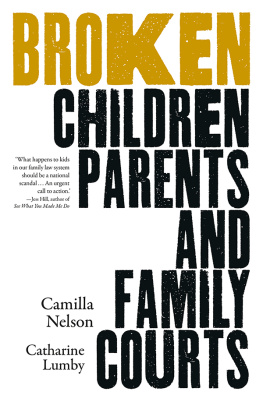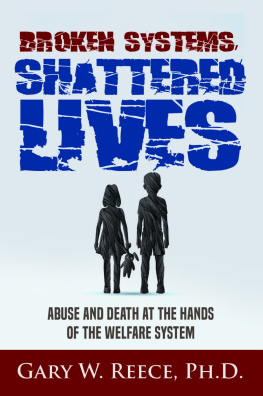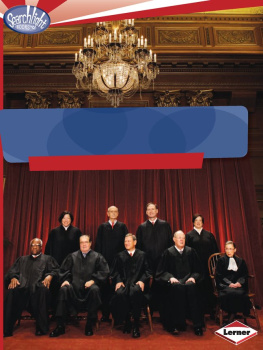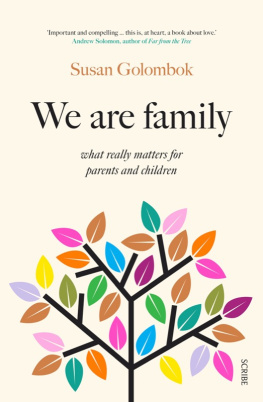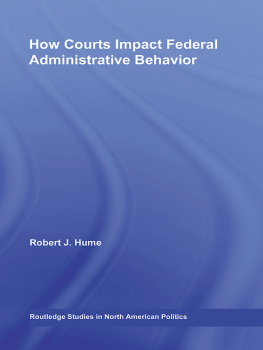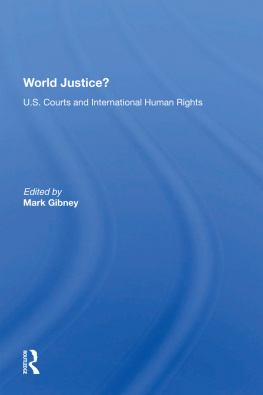Published by La Trobe University Press
in conjunction with Black Inc.
Level 1, 221 Drummond Street
Carlton VIC 3053, Australia
www.blackincbooks.com
www.latrobeuniversitypress.com.au
La Trobe University plays an integral role in Australias public intellectual life, and is recognised globally for its research excellence and commitment to ideas and debate. La Trobe University Press publishes books of high intellectual quality, aimed at general readers. Titles range across the humanities and sciences, and are written by distinguished and innovative scholars. La Trobe University Press books are produced in conjunction with Black Inc., an independent Australian publishing house. The members of the LTUP Editorial Board are Vice-Chancellors Fellows Emeritus Professor Robert Manne and Dr Elizabeth Finkel, and Morry Schwartz and Chris Feik of Black Inc.
Copyright Camilla Nelson and Catharine Lumby 2021
Camilla Nelson and Catharine Lumby assert their rights to be known as the authors of this work.
ALL RIGHTS RESERVED.
No part of this publication may be reproduced, stored in a retrieval system, or transmitted in any form by any means electronic, mechanical, photocopying, recording or otherwise without the prior consent of the publishers.
9781760643058 (paperback)
9781743821954 (ebook)

Cover design by Kim Ferguson
Text design and typesetting by Typography Studio
This book is dedicated to family court survivors,
especially child survivors
NOTES ON OUR METHODS
A FEW YEARS AGO, Brenda Hale, former president of the Supreme Court in the United Kingdom and a leading advocate for children, gave a paper to the World Congress of Family Law and Childrens Rights that was provocatively titled Are Children Human Beings?. Hale argued that judges should allow children to give evidence in family law cases. She also took issue with judges use of soulless initials to refer to children a practice intended to preserve their anonymity arguing that judges ought to give children a convincing pseudonym so that the child really leaps out of the page.
This book uses judgments as primary sources but furnishes all parties with convincing pseudonyms (other than in the final pages of Chapter 3 and in Chapter 6, where real names are used). These changes have been made to protect identity, as required by law, but also to focus attention on the human consequences of legal decisions, to emphasise that what is at stake is not an abstract legal principle, but real people, with real lives, hopes and dreams.
The term family courts used throughout the book echoes ordinary, vernacular usage. It refers to the series of court-centric institutions in which family law is applied, including the former Family Court of Australia, the Family Court of Western Australia, the former Federal Magistrates Court, and the Federal Circuit Court, which was recently merged with the Family Court of Australia and renamed the Federal Circuit and Family Court of Australia, containing two divisions. It also alludes to wider socio-legal institutions that encompass the culture of lawyers and money-making enterprises that are dependent on the family courts. This book is about the structural injustices of this court-centric system, which has shaped the lives of many, in the most intimate and personal ways.
INTRODUCTION
Im sorry, but these are not legal problems
NO SYSTEM OF LAW LACERATES peoples lives like the family courts. If you are a parent, judges can decide if, how and when you may see your child. They can decide which school your child can attend, whether your child may access medical treatment, and who their doctor will be. They can decide where you live and work, irrespective of your capacity to pay the rent or find employment; whether you may take your child on a holiday, and when and how far you may go.
In the often fiercely combative proceedings, lawyers may be given a wide latitude to argue that you are not morally fit to be a parent. They may cross-examine you to determine when you first had sex with your former partner. They may question why you once used the f-word in a text message. They can challenge your recollections about the size of a Woolworths bill, or why you were ten minutes late picking up your child from preschool one afternoon seven years ago. They may be allowed to submit the illegal surveillance videos your former partner secretly recorded in an intimate or angry moment, and screen them in the courtroom right in front of you. If you cry, they may argue you are hysterical. If you freeze, they may argue you are cold. If you are anxious particularly about your children they may argue that your testimony is unreliable.
Nothing can prepare a parent for the destruction that is likely to await them in the courtroom, whether they are watching from the bench behind the bar table, or under cross-examination on the stand. They might have turned to the law to right their wrongs, but they will soon find out that all their pain and hurt does not count for much once they are trapped in the system. In the family courts, under the laws gaze, the complicated realities of children, teenagers and parents feelings, relationships and circumstances will be ground down into stark binaries of good and bad, guilty and innocent, precluding any other way of explaining a familys needs, wants, views and behaviours.
Courts are medieval. They work by regimes of trial and punishment, marked by the clash of warring sides. This adversarial system with its applicant and respondent engulfs the family courts in a kind of culture war that defaults along gendered and heteronormative lines. There is a real perception not just on mens rights subreddits or dads in distress forums, but also among more mainstream communities that men do badly in family courts. It is regularly claimed that the family courts are infected with a virulent and unrestrained prejudice against fathers. A recent national survey found that 43 per cent of Australians believe that mothers often make up or exaggerate claims of domestic abuse to improve their case. Just a few years before, the same survey placed the figure at 53 per cent. Men whether they are experienced caregivers or not, whether they are violent or not are likely to be presented to the court as paramount to the psychological wellbeing of the child, as bedrocks of social and economic stability, and guarantors of the childs educational achievement. These gender stereotypes are clearly tawdry fabrications taken from the history pages of patriarchy, but their familiarity endows them with a ring of authenticity; when they enter the courtroom, they seem to confirm ideas that have been heard before.
Lawyers may be officers of the court, with an overriding duty to the court, but their duty not to tell an outright lie does not in any way restrain them from peddling cultural myths that are designed to obscure, evade and bury the truth. In a field of law in which facts are often scarce, and much depends on the opinion of a single expert witness or the demeanour of the parents under cross-examination and because family power dynamics tend to play out through the domestic, everyday and seemingly trivial cultural mythologies fill the gaps. Indeed, it is astonishing how differently a set of facts can be interpreted when they are or are not seen through a vengeful, malicious or hostile lens.
Another form of inequality within the family courts concerns income and the ability to pay for lengthy litigation. The family courts aim to finalise most applications within twelve months, and to deliver reserved decisions within a further three months. But despite their best efforts, the courts tend to fall short of these laudable aims. On a recent occasion, in a Federal Circuit Court case in Far North Queensland, a judge took seven years from the end of a hearing to hand down a decision, after the court files were lost. In the busy metropolitan registries of the specialist family court, a six-to-twelve-month wait for a judgment in a complex case is not uncommon. But even if the courts decision is handed down within two years, including any appeal, it is possible for action to be reinitiated if certain criteria are met. Families can find themselves caught up in a spiral of litigation lasting three, five or as in several cases in this book seven or even ten years.

